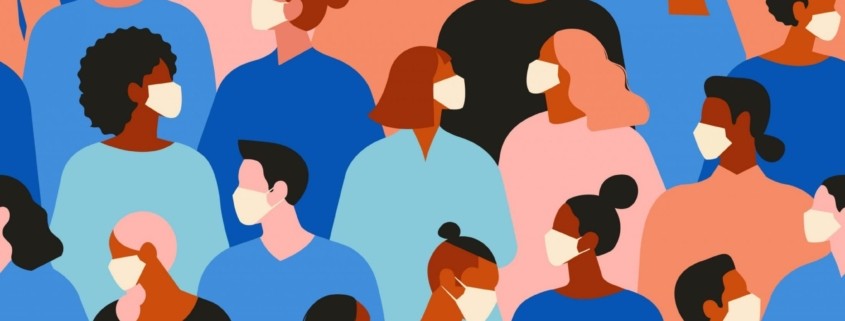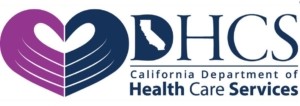Coronavirus, Mental Health and Addiction – A Conflict of Perspectives?
Table of Contents
Dealing with recovery and addiction in a time of a viral pandemic is a major challenge!
Every time I turn on my television within the last few weeks, I’ve been swamped with methods to deal with the public health risks surrounding the global pandemic of COVID-19, the Coronavirus. These important regulations involve isolation and “social-distancing.”
Both of these methods, although necessary to contain this pandemic, lead to being alone — but be careful, for being alone does not necessarily equate to loneliness!
Time and again, I have had patients share with me in therapy that their biggest triggers to use are boredom and anxiety. This comes about when they lose connections with others (what the experts are telling us to do in dealing with the current COVID-19 outbreak). Additionally, this permits one to think (a process that can lead us into a dark hole).
Imagine yourself, as a contestant on American Idol, about to step out on the stage during the “Hollywood Week” to sing in front of the judges and hundreds of other talented contestants. Instead of interpreting the ensuing feelings as energy and excitement (bringing on energy that generates positive attitudes and can enhance the performance), we start to ruminate on “What if I forget my lines?” and “There are so many people out there who are more talented than I am,” and “I should have worn my other pair of jeans; I look like a dork.”
Let’s take a look at this: the normal bodily reactions of heart racing, heightened energy, shortness of breath are the same in both contexts, except that the first example would lead to an enhanced performance whereas the second would push us to major anxiety which, in turn, could propel us to a disastrous performance. It is our interpretation of the feelings that lead us one way or the other.
So you find that you have to keep your distance and remain relatively alone. You can choose the healthy approach and think, “O.K., I can now clean up my study and get that paper written for my sociology class…” or you can postulate, “OMG; there’s no way I can manage being alone for that length of time.” One positive; one negative.
Do You or a Loved One Need Treatment for Substance Abuse?
Dana Point Rehab Campus has a caring and experienced on-site clinical team that provides unique customized treatment programs for all types of drug and alcohol addictions around the clock.
Call to Speak with a Treatment Specialist Today
And so, here we are, social distancing, overthinking and constantly being hit through the news with negative predictions, because no one knows where this will lead. On top of that, we don’t know how long we will be in a position of perceived helplessness, where we wait for someone else to take care of the pandemic and contain the virus. Re-read the Serenity Prayer.
The Mental Health Aspect
As we’re hit from all angles about the dire consequences of Coronavirus, we will find ourselves more and more anxious and depressed.
Anxiety is the basis of Obsessional Compulsive Disorder (OCD). OCD is marked by two different factors: one being the obsessional part that is propelled by recurring and intrusive thoughts that a person cannot seem to control. These thoughts can be potent enough to interfere with everyday life and generates anxiety and distress within the individual. “Feed the dog; feed the dog; feed the dog,” or “Lock the door; there are definitely crooks in the neighborhood, lock the door.” The compulsive part, on the other hand, is defined as a repeating pattern of behavior (turning the lights off…then on…then off for a set number of times or leaving the house and needing to return to ensure that you’ve turned the oven off, then doing the behavior again and again). OCD is motivated by fear. Fear of all kinds of horrible things that could happen and the misguided thoughts that you can control things (that you cannot control) through OCD thoughts and behaviors (Nevid et al, 2000).
Bringing us to our present situation, how much control do we have?
As with the previous example, our extent of control is determined by our personal version of the situation.
Here is where we need to bifurcate the concept and realize that being alone does NOT have to equate to boredom or loneliness. Social distancing is not boredom and need not be a trigger.
The psychological Aspect
In addition to anxiety, a sense of loneliness can also lead to depression, which is another trigger to drug use (Hari, 2018). As we contemplate the information that comes to us from the experts, it appears that we are helpless in fighting the virus and must just curl up until it goes away. We are all humans who enjoy taking action against something that is toxic to us (this is why we seek recovery). Note that I said, “can lead,” and not necessarily “will lead”…. Being alone does not mean that you’re lonely. Being alone, when defined as a time for quiet and creativity, can be a productive time for art, song-writing, crafts, cleaning, etc. We must, however, have some of these means in our arsenal of choices and be aware that we can pull them out to positively maximize our ‘alone time.’
If, on the other hand, we sit within our tight box of thoughts and project all the things that could possibly go wrong in our lives, based on our past experiences and traumas, we are leading ourselves down a path of depression, anxiety and strengthening our triggers.
Worry is an interesting state of being, for it is based not on what we did (the past) nor what we are doing right now (the present), but on something that MAY occur (the future). Guess what, the future is not here yet, but yet we do our best to manifest it in all its gore and horror and then fret about the thought as if it is destined to manifest, then we provide a cushion of dread upon which we nurture the thought!
According to the concept of Mindfulness Meditation, we do not allow the thoughts to pass through us (as they do thousands of times each day), rather, we stop the negative thoughts, build on them, and disasterize, plummeting us into deep depression and a desire to “grab a drink” to help ease the anxiety that we’re now feeling.
…and it’s all make-believe, created in our minds in an effort for control.
How much control do we have?
An event in life is simply and event: we give it meaning. Events happen all around us. We can’t help that, nor can we control their happening. Our past experiences and the way we formulated our understanding of the world give rise to the projection of these negative events onto our current state of affairs. The very knowledge of this process can help us curtail our negative outlook to help us reduce anxiety, depression, and drug urges.
I saw someone with a sign the other day that read, “I have 20 rolls of toilet paper that I’m willing to trade for a 4-bedroom house.” Humor is also a method to deal with the present situation. This is in no way meant to diminish the seriousness of the pandemic, but humor is one method to psychologically deal with the present condition.
By taking care of yourself, you are in control of yourself. You are engaging in behaviors that can help your health and sobriety. Keep in mind that when you’re urged to isolate, you are not condemned to a world of boredom. This is where you are in total control.
As I write this, the television news is reporting on the use of music to bridge quarantined people all around the world through video-conferencing methods like Skype and FaceTime to form a social community while they maintain social distancing in person.
In previous posts, I have addressed the need to have interests and hobbies to stimulate your creativity. Just a few ideas to have you take a look at:
- Catch up on that movie that you’ve been putting off because you didn’t have time.
- Write your autobiography. Remember, the past does not dictate the future. You dictate that. But you have to know from whence you came.
- Reduce the amount of time you spend watching the news.
- Don’t neglect the power of a pet.
- Exercise (walk if weather permits to get exercise and fresh air). If you can’t, get on the floor!
- Organize your ‘stuff.’
- Use social media to connect with friends and family.
- Laugh.
- Read. Pick up the novel you bought two years ago and haven’t looked at since because you didn’t have time.
- Be cognizant of obsessional thoughts and be mindful when your mind takes you to the possible disaster that you are conjuring up. You’re into the make-believe.
All of these methods circumvent the triggers of boredom and isolation that tend to lead you down the path of addiction.
Author of Article: Dr. John Biroc
Dr. Biroc holds two master’s degrees (theatre and psychology) and a doctorate from USC in Psychology. Dr. Biroc blends the concepts of intellect and creativity in his approach to recovery and has taught at UCLA, California State University, Northridge, and Antioch University. In addition, he has worked as a contract therapist for mental hospitals in California.










Leave a Reply
Want to join the discussion?Feel free to contribute!